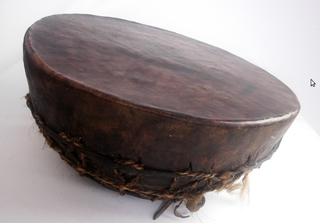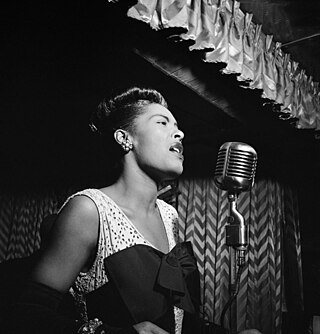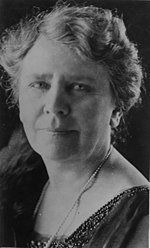Musicology is the scholarly analysis and research-based study of music. Musicology departments traditionally belong to the humanities, although some music research is scientific in focus. Some geographers and anthropologists have an interest in musicology, so the social sciences also have an academic interest. A scholar who participates in musical research is a musicologist.
Music history, sometimes called historical musicology, is a highly diverse subfield of the broader discipline of musicology that studies music from a historical point of view. In theory, "music history" could refer to the study of the history of any type or genre of music. In practice, these research topics are often categorized as part of ethnomusicology or cultural studies, whether or not they are ethnographically based. The terms "music history" and "historical musicology" usually refer to the history of the notated music of Western elites, sometimes called "art music".

Ethnomusicology is the study of music from the cultural and social aspects of the people who make it. It encompasses distinct theoretical and methodical approaches that emphasize cultural, social, material, cognitive, biological, and other dimensions or contexts of musical behavior, in addition to the sound component. Within musical ethnography it is the first-hand personal study of musicking as known as the act of taking part in a musical performance.

A composer is a person who writes music. The term is especially used to indicate composers of Western classical music, or those who are composers by occupation. Many composers are, or were, also skilled performers of music.
Susan Kaye McClary is an American musicologist associated with "new musicology". Noted for her work combining musicology with feminist music criticism, McClary is professor of musicology at Case Western Reserve University.
New musicology is a wide body of musicology since the 1980s with a focus upon the cultural study, aesthetics, criticism, and hermeneutics of music. It began in part a reaction against the traditional positivist musicology—focused on primary research—of the early 20th century and postwar era. Many of the procedures of new musicology are considered standard, although the name more often refers to the historical turn rather than to any single set of ideas or principles. Indeed, although it was notably influenced by feminism, gender studies, queer theory, postcolonial studies, and critical theory, new musicology has primarily been characterized by a wide-ranging eclecticism.
Bruno Nettl was an ethnomusicologist who was central in defining ethnomusicology as a discipline. His research focused on folk and traditional music, specifically Native American music, the music of Iran and numerous topics surrounding ethnomusicology as a discipline.

Charles Louis Seeger Jr. was an American musicologist, composer, teacher, and folklorist. He was the father of the American folk singers Pete Seeger (1919–2014), Peggy Seeger, and Mike Seeger (1933–2009); and brother of the World War I poet Alan Seeger (1888–1916) and children's author and educator Elizabeth Seeger (1889-1973).
Vida Chenoweth was a solo classical marimbist, an ethnomusicologist, and a linguist.
The Society for Ethnomusicology is, with the International Council for Traditional Music and the British Forum for Ethnomusicology, one of three major international associations for ethnomusicology. Its mission is "to promote the research, study, and performance of music in all historical periods and cultural contexts."
Carolyn Abbate is an American musicologist, described by the Harvard Gazette as "one of the world’s most accomplished and admired music historians". She is currently Paul and Catherine Buttenwieser University Professor at Harvard University. From her earliest essays she has questioned familiar approaches to well-known works, reaching beyond their printed scores and composer intentions, to explore the particular, physical impact of the medium upon performer and audience alike. Her research focuses primarily on the operatic repertory of the 19th century, offering creative and innovative approaches to understanding these works critically and historically. Some of her more recent work has addressed topics such as film studies and performance studies more generally.
The International Alliance for Women in Music (IAWM) is an international membership organization of women and men dedicated to fostering and encouraging the activities of women in music, particularly in the areas of musical activity, such as composing, performing, and research, in which gender discrimination is a historic and ongoing concern. In the U.S. the organization operates as a 501(c)3 non-profit. The IAWM engages in efforts to increase the programming of music by female composers, to combat discrimination against female musicians, including as symphony orchestra members, and to include accounts of the contributions of women musicians in university music curricula and textbooks.

Philip Vilas Bohlman is an American ethnomusicologist.

The cultrun is a percussion instrument used by the Mapuche in Chile.
Marcia Judith Citron is an American professor of musicology at Rice University in Houston, Texas. She is a leading musicologist specializing in issues regarding women and gender, opera and film.

Women in music include women as composers, songwriters, instrumental performers, singers, conductors, music scholars, music educators, music critics/music journalists, and in other musical professions. Also, it describes music movements, events and genres related to women, women's issues, and feminism.

The UCLA Herb Alpert School of Music, located on the campus of the University of California, Los Angeles, is “the first school of music to be established in the University of California system.” Established in 2007 under the purview of the UCLA School of Arts and Architecture and the UCLA Division of Humanities, the UC Board of Regents formally voted in January 2016 to establish the school.[1] Supported in part by a $30 million endowment from the Herb Alpert Foundation.[1]
Ethnomusicology is the study of music from the cultural and social aspects of the people who make it. It encompasses distinct theoretical and methodical approaches that emphasize cultural, social, material, cognitive, biological, and other dimensions or contexts of musical behavior, in addition to the sound component. While the traditional subject of musicology has been the history and literature of Western art music, ethnomusicology was developed as the study of all music as a human social and cultural phenomenon. Oskar Kolberg is regarded as one of the earliest European ethnomusicologists as he first began collecting Polish folk songs in 1839. Comparative musicology, the primary precursor to ethnomusicology, emerged in the late 19th century and early 20th century. The International Musical Society in Berlin in 1899 acted as one of the first centers for ethnomusicology. Comparative musicology and early ethnomusicology tended to focus on non-Western music, but in more recent years, the field has expanded to embrace the study of Western music from an ethnographic standpoint.

Marcia Alice Herndon was an American ethnomusicologist and anthropologist. She specialized in the ways culture and music reflect each other. Herndon grew up in a family of country music performers in North Carolina. After completing her master's degree in 1964 at Tulane University, she performed classical music for several years. Earning a PhD in anthropology and ethnomusicology in 1971, she taught at the University of Texas at Austin, the University of California, Berkeley, and the University of Maryland. She is widely known for her contributions to Native American music studies with books such as Native American Music, as well as collaborating on Music as Culture, and Music, Gender, and Culture, which analyze the overlapping of musical forms and cultural structures.









